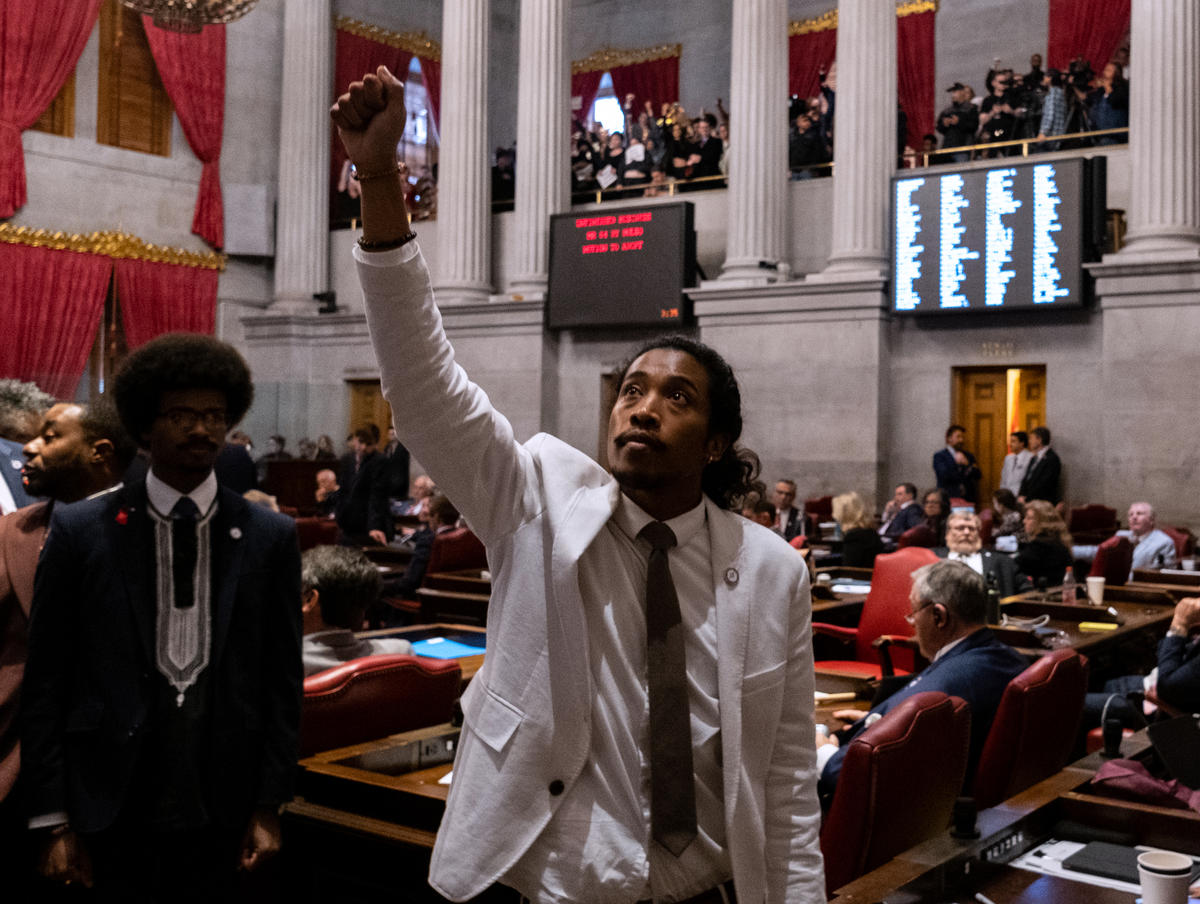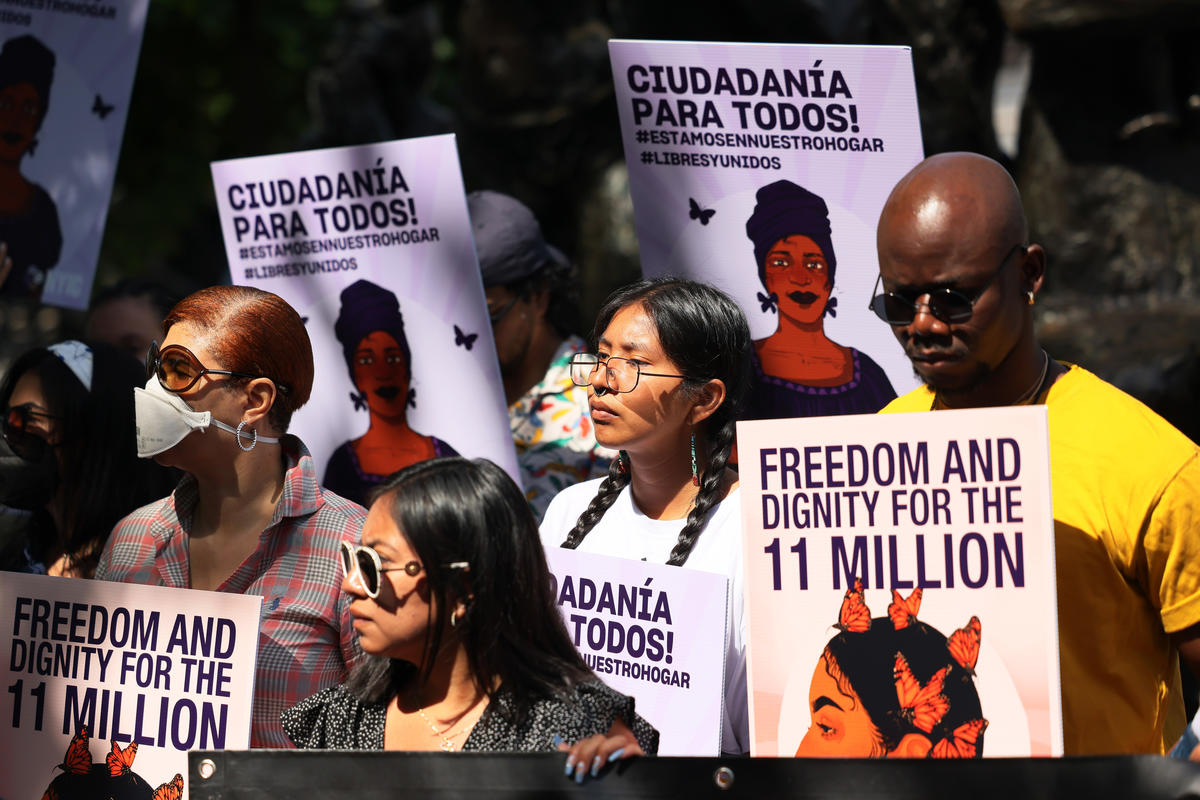The “American Dream” has been a belief rooted in opportunity and prosperity — the myth of upward social mobility exclusively through merit and without regard to social positioning. However, the narrative of achieving this kind of American promise perpetuates the idea that if Asian people work hard enough, stay resilient enough, we, too, can achieve equal success and escape economic, social, and political hardship. What this fails to recognize is that our communities have been here for generations.
Resiliency is about enduring unfair conditions. It’s also harmful rhetoric that advances the model minority myth and xenophobia. In fact, anti-Asian racism includes the expectation of resiliency coupled with foreigner bias. And no matter how many hours we log, how resilient we stay, and . So how can “foreigners” realize the American Dream? , our generational poverty reveals that the American Dream isn’t achieved by pulling up our bootstraps. What we have learned is that having to pull up bootstrap after bootstrap is a reaffirmation of an inequitable state of living, not a model we need to champion.
May is Asian American, Native Hawaiian, and Pacific Islander Heritage Month in the United States, a time to celebrate the contributions and culture of our diverse communities and bring focused attention to false narratives and the challenges that still persist and impact our communities. This year’s theme, “Advancing Leaders Through Opportunity,” specifically highlights the need to create material and intentional pathways for the next generation of Asian, Native Hawaiian, and Pacific Islander (ANHPI) youth. This includes reclaiming the narrative and calling out harmful rhetoric, like the model minority myth, xenophobia, and anti-ANHPI hate.
Our youth deserve to be championed, see leaders who look and sound like them in their workplace, and be given the agency to achieve their Asian American Dream, whatever that looks and feels like. I’ve connected with Kristine deGuzman, Executive Vice President and beloved leader by employees at every level, to learn about what the Asian American dream includes, what leaders can do today to advocate and champion ANHPI talent, and what personal practices every leader should embody to realize solutions towards equality.
Kristine, what does the Asian American Dream mean to you?
For background, I’m a first-generation Filipina-American, and my parents immigrated to the US when they were in their mid-20s. My mom was only able to visit her parents in the Philippines one more time before they passed away, and my dad wasn’t able to return to his home island for 40 years.
So to me, the Asian American dream means living a life that makes the sacrifices my parents made in their own lives worth it. I may not have followed a “traditional” career path in their eyes — I’m obviously not a doctor, a nurse, or a lawyer — but I’ve had the privilege of pursuing my creativity and personal interests in a way that wasn’t available to them when they were my age, and I know they’re proud of me and the life I’ve built.
There is an advancement and belonging gap, impacting career mobility and a sense of safety for ANHPI professionals. In fact, . This gap is even sharper for Asian and Pacific Islander women.
What do you think contributes to this gap and what can individuals do to mitigate these challenges?
This is an interesting question, because as a Filipina-American, I recognize that I occupy a different space of privilege compared to my East Asian and South Asian colleagues. In contrast to common Asian stereotypes, Filipinos are usually seen as more outgoing, irreverent, friendly, and notably, more adept at assimilating to the dominant culture. I’ve certainly benefited from this in my career.
But I recognize how cultural differences and stereotypes hurt my fellow ANHPI colleagues — we’re seen as being deferential to authority, lacking in leadership presence, or easy to take advantage of (particularly ANHPI women). With all these things working against us, it can be hard to 1) feel a sense of belonging in workplaces that prioritize Western character traits, and 2) work against our cultural upbringings and confidently advocate for ourselves at work.
There are a couple things I think individuals can do to overcome this gap:
- I strongly believe everyone needs a mentor/sponsor. Bonus points if it’s a mentor who shares your lived experience. Because most ANHPI communities aren’t raised to advocate for themselves, I think it’s powerful to have someone you trust reflect your strengths back to you and help you build up the muscle so you can one day do it for yourself
- I also think ANHPI leaders who make it to the top have a duty to impart their knowledge and sponsor junior ANHPI talent. I’m the first person in my family to work in Comms/Marketing, and everything I know I learned on the job. It would have meant so much to me to see someone that looked like me in a senior role when I was early in my career, so I love that I can be that person to others and share what I’ve learned along the way
Team members of every level love working and learning from you. Can you share some personal practices that have allowed you to show up as an authentic and trusted leader, mentor, and friend? How might these practices help inform how you advocate for ANHPI talent?
First of all, that is so kind to hear! Having positive impact within the corporate world is very important to me, and I’m grateful to be a visible ANHPI leader that doesn’t fit the stereotypical mold of what a senior leader looks like.
That being said, showing up as an authentic leader has been a yearslong process of self-discovery. Back in 2017 I had a 10-month unemployment spell that shattered my confidence and led to a long spell of imposter syndrome. I questioned everything — did I deserve my title? My salary? Would my boss discover I was in way over my head? Worse, would my clients?
Working on my confidence and getting really clear about who I am at my core — independent of my work, my relationships, and other external identity markers — has been critical in enabling me to show up as the leader I am today. I’ve gone to therapy monthly for the past 5 years, and I’ve also worked with an executive coach. In terms of specific practices — I meditate for 5-10 minutes and set 1-2 intentions every morning to set up my day, I engage in my hobbies (yoga, pole dance) weekly, and I journal/carve out time for self-reflection regularly. I prioritize my mental health over everything else, because I can’t be there for others if I’m not there for myself first.
As I’ve worked on my confidence and my ability to celebrate myself, I’ve also gotten really good at celebrating others. My parents didn’t tell me they were proud of me until I was 17, so I know what it’s like to crave recognition for the work you’re doing. If I notice someone hasn’t said anything in a meeting, I’ll pause the conversation and give them space to share their opinion (particularly important for ANHPI talent who may find it intimidating to speak up in large groups). I’ll compliment someone more than once for a good idea or behavior. And I always, always give credit. If I can play a small part in building up someone else’s reputation, particularly someone early in the career, that’s a huge win.
The ANHPI communities are often painted with a broad brush, a monolith. What can businesses and leaders consider today to demonstrate culturally informed and responsive actions to portray our ANHPI communities in the ways we need?
Specifically for heritage months — even just recognizing the breadth and variety of experiences with the ANHPI community is an important first step. One thing I’ve noticed when it comes to ANHPI programming from businesses is that it often caters to those of East Asian identity, and I’ve often felt under-represented, because as mentioned above my experience as a Filipina American in the US has been very different.
Though this year’s ANHPI month is about to come to the end, I would challenge businesses and leaders to consider their programming for next year — if you don’t have the time or desire to put in the rigor to ensure your programming is inclusive and acknowledges the differences across ANHPI identities, ideally by partnering with external consultants if you don’t have the resources in-house, then who are you catering to? Is it only to check a box? Consider that your programming may have the unintended effect of reinforcing existing stereotypes and causing additional harm, negating any goodwill you may have tried to engender with our community.
If you could share a call to action in response to the theme, Advancing Leaders Through Opportunity, what might that action be?
Speak the names of high-performing but under-the-radar talent in rooms they’re not in. Take the time to get to know people as individuals, and if you notice untapped potential, share it. Be the person that creates connections and opportunities. I wouldn’t be where I am today had it not been for the many leaders who took an interest in me and spoke my name into rooms, so if you’re a leader in a position of influence, take it seriously. If we want to overcome the advancement gap, we need to use our collective power to raise up the next generation behind us.
Sharon Cho is a VP on the DEI & Multicultural teams and Kristine deGuzman is an EVP and Global Client Leader.







